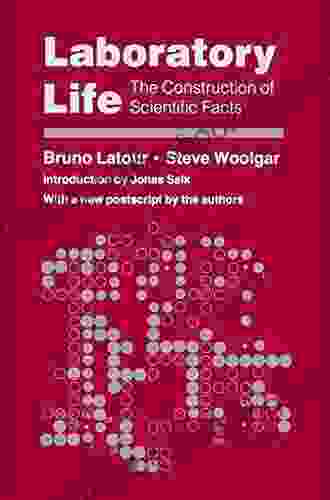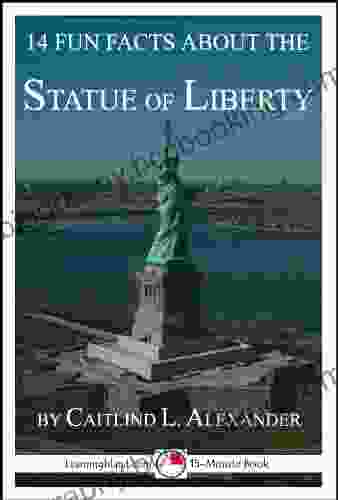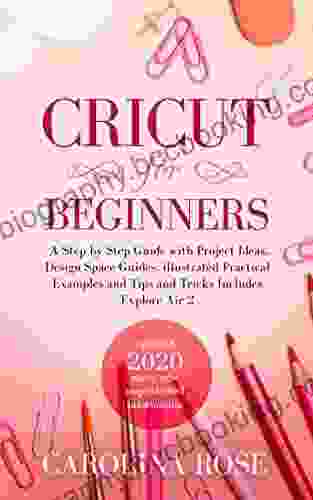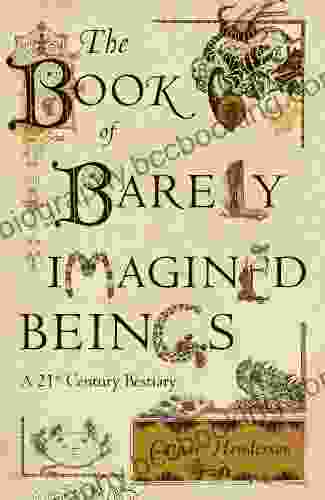The Construction of Scientific Facts: A Critical Examination

In his influential book The Construction of Scientific Facts, philosopher Ian Hacking explores the complex and often controversial process by which scientific facts are created. Hacking argues that facts are not simply discovered, but rather are constructed through a process of negotiation and consensus. This process is often messy and imperfect, but it is ultimately essential for the progress of science.
The Construction of Scientific Facts is a major contribution to the philosophy of science. It challenges the traditional view of science as a purely objective enterprise and provides a new understanding of the role of human agency in the construction of knowledge. Hacking's work has been widely influential in a number of fields, including sociology, anthropology, and history.
4.6 out of 5
| Language | : | English |
| File size | : | 5066 KB |
| Text-to-Speech | : | Enabled |
| Screen Reader | : | Supported |
| Enhanced typesetting | : | Enabled |
| Word Wise | : | Enabled |
| Print length | : | 287 pages |
One of the most important insights in The Construction of Scientific Facts is Hacking's distinction between "facts" and "truths." According to Hacking, facts are statements that are accepted as true by a community of scientists. Truths, on the other hand, are statements that are actually true, regardless of whether or not they are accepted by a community of scientists.
This distinction is important because it shows that not all facts are truths. In fact, some facts may be false, and some truths may not be accepted as facts. This is because the process of constructing scientific facts is not always perfect. It is often influenced by factors such as bias, prejudice, and wishful thinking.
Despite the imperfections of the process, the construction of scientific facts is essential for the progress of science. This is because facts are the building blocks of scientific knowledge. They provide the foundation for new theories and discoveries. Without facts, science would be impossible.
Of course, the construction of scientific facts is not without its critics. Some argue that Hacking's view of science is too relativistic. They claim that there is no such thing as objective truth, and that all facts are simply social constructions.
Others argue that Hacking's view of science is too pessimistic. They claim that the process of constructing scientific facts is not as messy and imperfect as Hacking makes it out to be. They believe that science is a reliable way of generating knowledge about the world.
Despite these criticisms, The Construction of Scientific Facts remains a landmark work in the philosophy of science. It has fundamentally changed our understanding of the nature of scientific knowledge and the role of human agency in the construction of truth.
Hacking's Argument
Hacking's argument in The Construction of Scientific Facts is based on a number of case studies. He examines the history of a variety of scientific concepts, including the concept of the atom, the concept of the gene, and the concept of race.
Hacking shows that these concepts have not always been understood in the same way. In fact, they have changed significantly over time. This is because these concepts are not simply discovered, but rather are constructed through a process of negotiation and consensus.
This process is often messy and imperfect. It is influenced by factors such as bias, prejudice, and wishful thinking. However, it is ultimately essential for the progress of science. This is because facts are the building blocks of scientific knowledge. They provide the foundation for new theories and discoveries.
Without facts, science would be impossible.
Implications for the Philosophy of Science
The Construction of Scientific Facts has a number of implications for the philosophy of science. First, it challenges the traditional view of science as a purely objective enterprise. This view holds that science is simply a matter of discovering the truth about the world.
However, Hacking shows that this view is unrealistic. Science is not a purely objective enterprise. It is also a social enterprise. The construction of scientific facts is a process that is influenced by human agency.
Second, The Construction of Scientific Facts provides a new understanding of the role of truth in science. According to Hacking, not all facts are truths. In fact, some facts may be false, and some truths may not be accepted as facts.
This is because the process of constructing scientific facts is not always perfect. It is often influenced by factors such as bias, prejudice, and wishful thinking.
Third, The Construction of Scientific Facts raises questions about the nature of scientific knowledge. If facts are not always true, then what is the basis of scientific knowledge?
Hacking argues that scientific knowledge is based on a process of negotiation and consensus. This process is not always perfect, but it is ultimately essential for the progress of science.
The Construction of Scientific Facts is a major contribution to the philosophy of science. It challenges the traditional view of science as a purely objective enterprise and provides a new understanding of the role of human agency in the construction of knowledge. Hacking's work has been widely influential in a number of fields, including sociology, anthropology, and history.
4.6 out of 5
| Language | : | English |
| File size | : | 5066 KB |
| Text-to-Speech | : | Enabled |
| Screen Reader | : | Supported |
| Enhanced typesetting | : | Enabled |
| Word Wise | : | Enabled |
| Print length | : | 287 pages |
Do you want to contribute by writing guest posts on this blog?
Please contact us and send us a resume of previous articles that you have written.
 Book
Book Novel
Novel Page
Page Chapter
Chapter Text
Text Story
Story Genre
Genre Reader
Reader Library
Library Paperback
Paperback E-book
E-book Magazine
Magazine Newspaper
Newspaper Paragraph
Paragraph Sentence
Sentence Bookmark
Bookmark Shelf
Shelf Glossary
Glossary Bibliography
Bibliography Foreword
Foreword Preface
Preface Synopsis
Synopsis Annotation
Annotation Footnote
Footnote Manuscript
Manuscript Scroll
Scroll Codex
Codex Tome
Tome Bestseller
Bestseller Classics
Classics Library card
Library card Narrative
Narrative Biography
Biography Autobiography
Autobiography Memoir
Memoir Reference
Reference Encyclopedia
Encyclopedia Bulut E Kok
Bulut E Kok Brooklyn James
Brooklyn James Bryan Miller
Bryan Miller Brian Cole
Brian Cole Cassandra Johnson
Cassandra Johnson Carl N Mcdaniel
Carl N Mcdaniel Carolyn Dewar
Carolyn Dewar Carolyn Meyer
Carolyn Meyer Brennan Barnard
Brennan Barnard Catherine Craft
Catherine Craft Carlyn Beccia
Carlyn Beccia C G Yeager
C G Yeager Carol Dulis
Carol Dulis Brian Winter
Brian Winter Bryan A Williams
Bryan A Williams Cap Daniels
Cap Daniels Brian L Silver
Brian L Silver Brian Ahearn
Brian Ahearn C R Wesley
C R Wesley Brian Roberts
Brian Roberts
Light bulbAdvertise smarter! Our strategic ad space ensures maximum exposure. Reserve your spot today!

 Andrew BellUnveiling the Enchanting World of Smiley Birthday Carol Pinette: A Literary...
Andrew BellUnveiling the Enchanting World of Smiley Birthday Carol Pinette: A Literary... J.R.R. TolkienFollow ·2.2k
J.R.R. TolkienFollow ·2.2k Easton PowellFollow ·3k
Easton PowellFollow ·3k Logan CoxFollow ·5.6k
Logan CoxFollow ·5.6k James JoyceFollow ·17k
James JoyceFollow ·17k Heath PowellFollow ·5k
Heath PowellFollow ·5k Barry BryantFollow ·15.2k
Barry BryantFollow ·15.2k Osamu DazaiFollow ·4.1k
Osamu DazaiFollow ·4.1k Jacques BellFollow ·15.7k
Jacques BellFollow ·15.7k

 Andy Hayes
Andy HayesUnveil the Rich Tapestry of Rural Life: Immerse Yourself...
Step into the enchanting pages of "Still...

 David Mitchell
David MitchellUnlocking the Depths of Cybersecurity: An In-Depth Look...
In the ever-evolving landscape of...
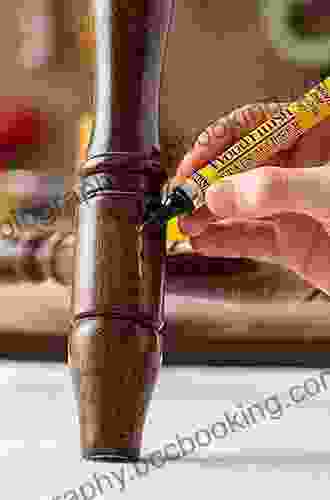
 Seth Hayes
Seth HayesUnlock the Secrets of Watercolor Landscapes: 37 Tools for...
Embark on a...

 Tyler Nelson
Tyler Nelson15 Insightful Answers to Questions on Uterine Fibroid
Uterine fibroids...
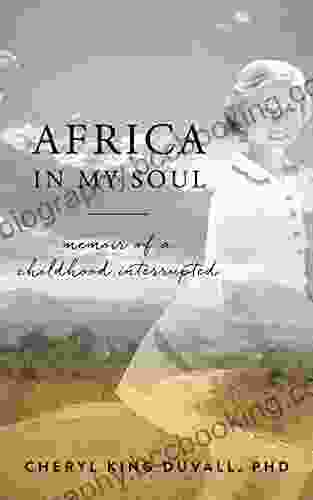
 Evan Hayes
Evan HayesAfrica In My Soul: A Literary Odyssey That Captivates the...
In a world where diverse cultures...
4.6 out of 5
| Language | : | English |
| File size | : | 5066 KB |
| Text-to-Speech | : | Enabled |
| Screen Reader | : | Supported |
| Enhanced typesetting | : | Enabled |
| Word Wise | : | Enabled |
| Print length | : | 287 pages |


